Artefact 253
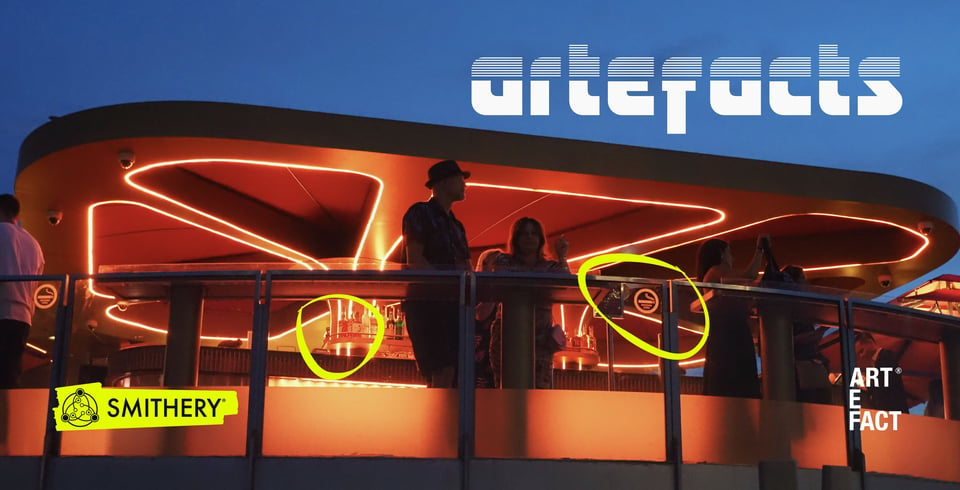
Well hi there. How’re you? Nice summer?
</smoltolk>
Let’s just crack on with it shall we…?
Cognitive Debt
Yes, Cognitive Debt has become a repeating theme for this email.
It was here that I first expanded on this little nagging idea that I had, regarding the hole where the thinking should be as people and organisations started using LLMs more:
“Cognitive Debt is where you forgo the thinking in order just to get the answers, but have no real idea of why the answers are what they are.”
Artefacts Newsletter #247, April 25th, 2025
Recently, I had lunch with Tom Chatfield and Tracey Camilleri to discuss some of the implications of the field, and what we were seeing in respective pieces of work.
And Tom mentioned he’d pointed to the coining of ‘Cognitive Debt’ in his forthcoming book, “How to Think Clearly”.
At once I felt excited… but also underthought!
So I spent a little time consolidating thoughts and formalising an exploration. Cognitive Debt now has a more permanent home on the Smithery site, and I have expanded some of my thinking about what it means for organisations as a result.
Happily, I found it to be a perfect opportunity to include this amazingly resonant idea from the recent Hercule Poirot film, A Haunting In Venice.
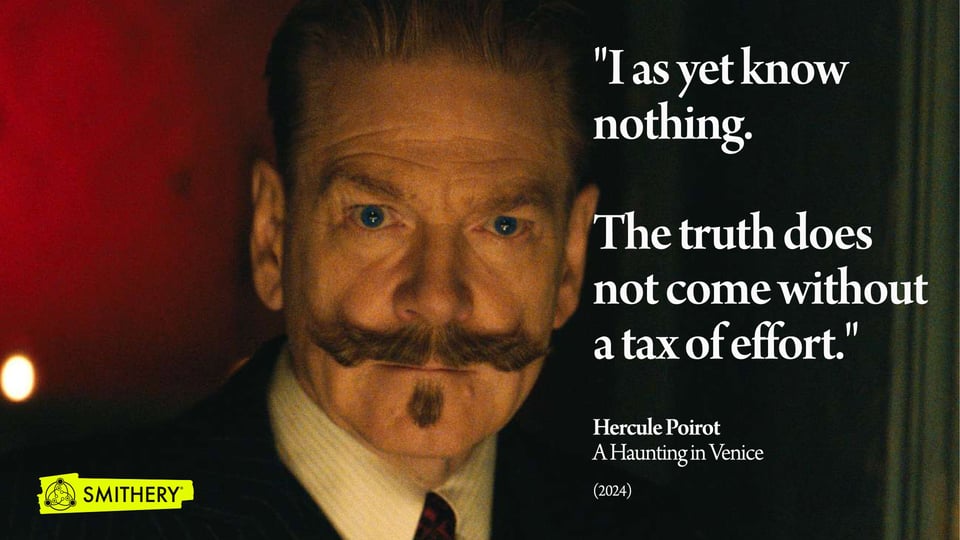
“I as yet know nothing. The Truth does not come without a tax of effort”.
Wise words, Hercule.
I have also started gathering examples of cognitive debt on that page too. eg. The recent MIT paper on how individuals accrue cognitive debt, the reading list with made-up books published by the Chicago Sun-Times, the clinicians who are now 20% less able to spot tumours after using a supporting AI system in their work…
I’ll be adding to these examples for the rest of the year; if you see any good ones, do send them over.
Futures Through Design 2026
Back in early July myself, Rob Phillips and Gem Barton ran the first Futures Through Design course at the Royal College of Art.
It was a roaring success, and so it’s coming back in March 2026.
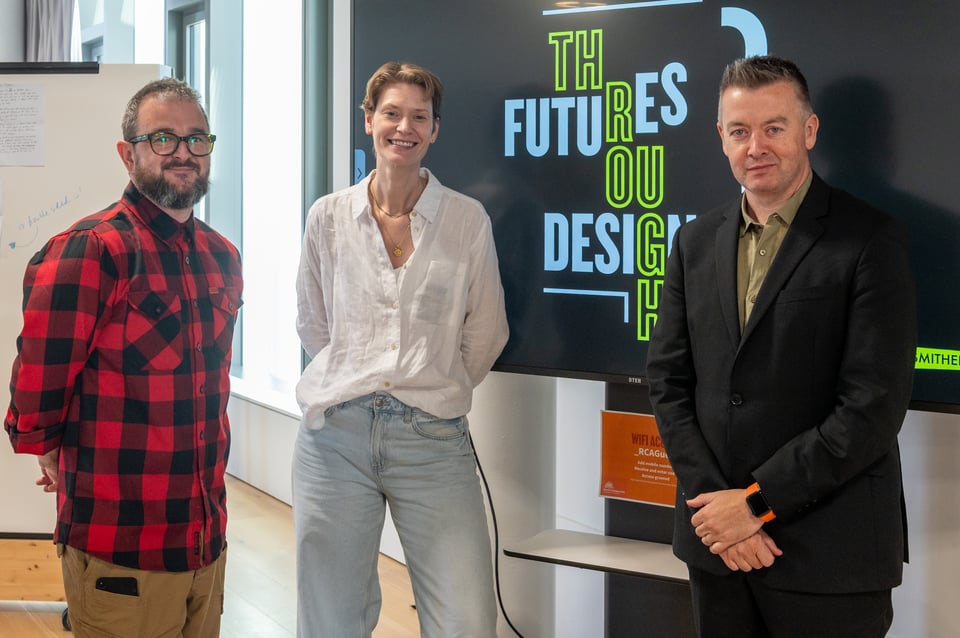
We will be running a live ‘In Session’ - an online exploration of the topic with guests - before the end of year, to give people a taste of what the course covers.
You can find out more from the RCA site here, and register to find out when the session is.
Three Future Frames article
At the heart of both the IED Innovation and Future Thinking course in Barcelona, and the Futures Through Design course at the RCA, lies this Three Future Frames model.
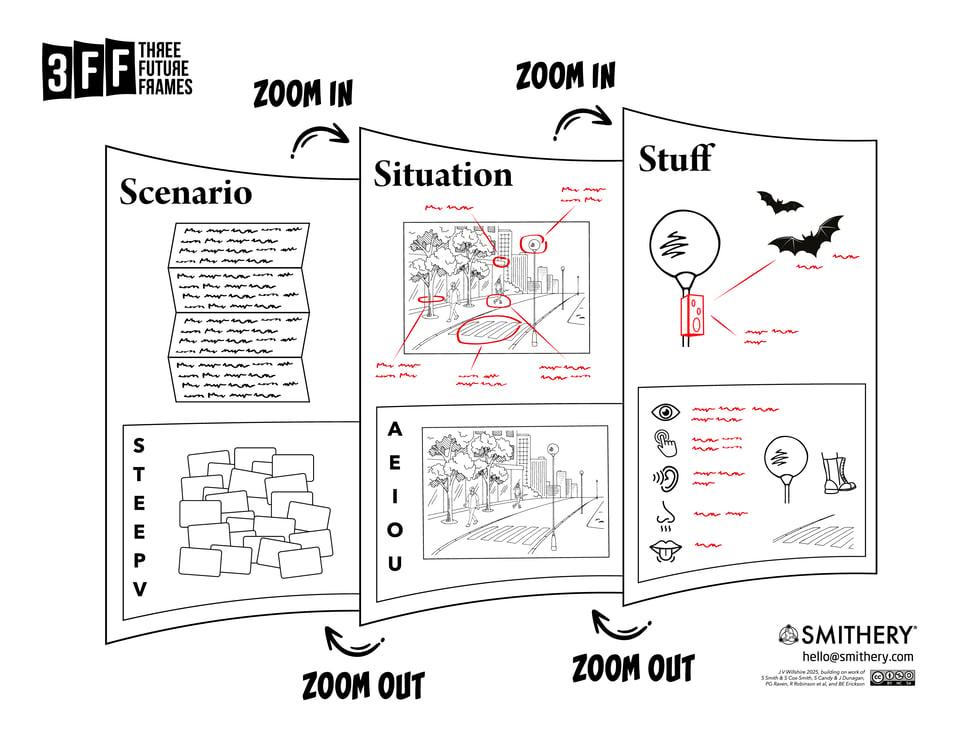
Earlier in the summer, Stephen Dupont (Editor of the Association of Professional Futurists magazine Compass) asked if I’d write something about it. Knowing we had Futures Through Design in the offing, I roped in Rob to write something together.
You can read it here, but for a bargain $10 you can get the whole edition here which features many other excellent pieces.
From the board
I keep meaning to go through the board of ideas that sits in the office a little more often (as I promised to do). So here are three really quickly…
Three Horizons Whisky Tasting
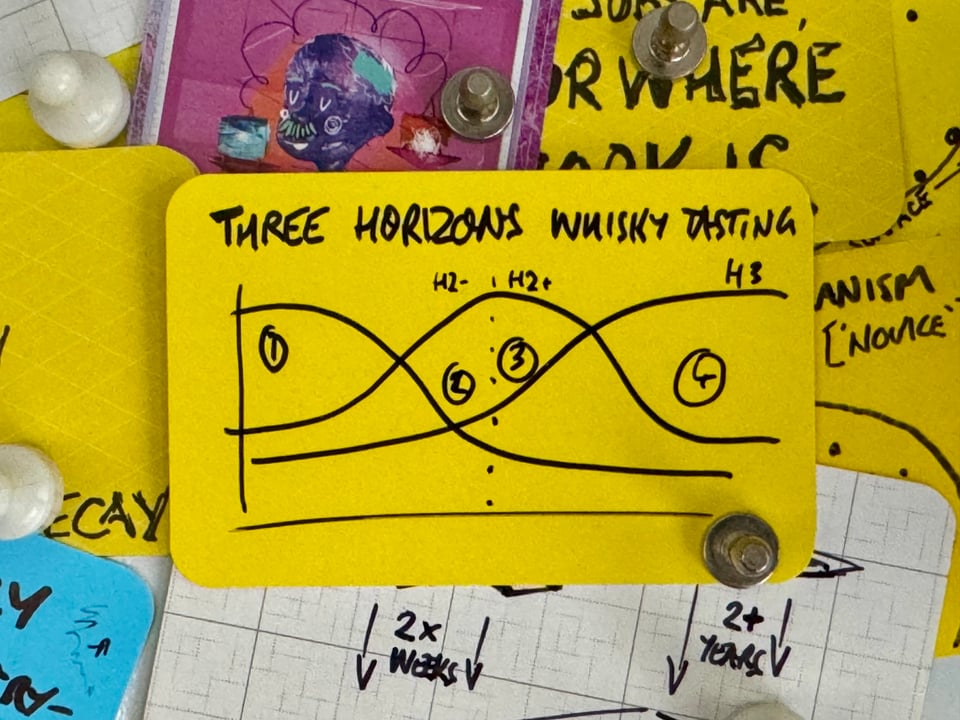
I went out to Muse @ the RSA with my good friend Alice (who writes fantastically well about the world of drinks), and new friend Annabel (who set up an amazing new whisky distillery called NcNean).
We were talking about all of the different innovation in the world of whisky. And I doodled the Three Horizons Model, and we started to wonder what a whisky tasting would look like?
For instance, you could start with one classic whisky from the dominant ‘H1’ horizon; then an ‘H2 minus’ which feels like it’s kind of innovative, but ripe for capture by the dominant system of today; then an ‘H2 plus’, which pushes more in the direction of changing the system whilst still managing to feel like it’s in the same territory; and finishing with an ‘H3’ which really capture where the industry should go.
Maybe this is a Burns night thing for the end of January?
Right-sizing for Zoom
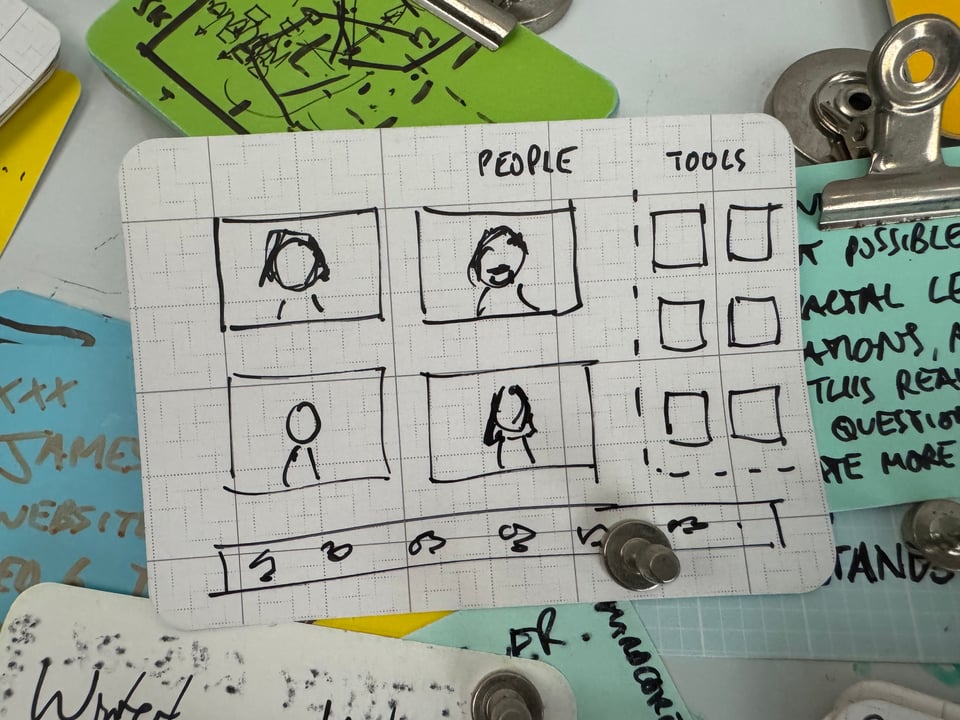
It is super-annoying that people are still bringing along transcription bots to meetings (or worse still, they arrive without the person attached). And then they take up a ‘person’s worth’ of real estate on the screen.
There should be a way that Zoom (other, lesser platforms are available) can automatically recognise these for what they are, and drop them into a small section off to the side.
Relationality
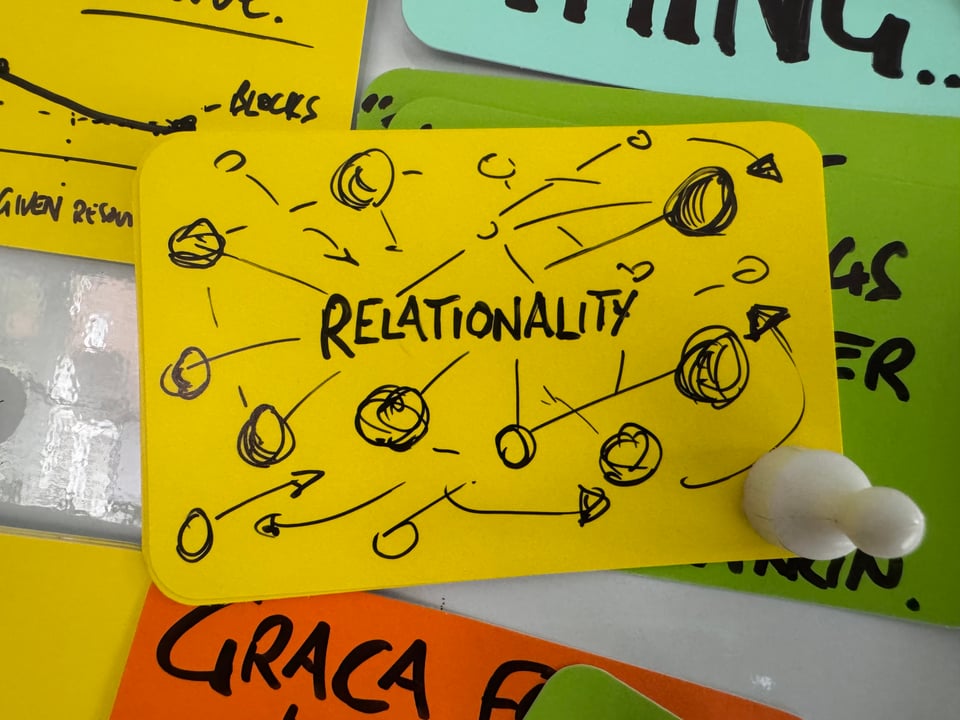
This was a little diagram I made whilst thinking about a recent STEPS Collective meetup I was running with Lizzie Shupak.
I was struck by how the concept of relationality is beginning to creep into my work a lot more, and actually how it is impossible to draw or model. Which are two of my go-to techniques for understanding something.
So instead… I tried to describe the term as follows:
Relationality
Things that you see,
things that you don’t.
Things that’ll move,
things that just won’t.
Things that loom large,
things that seems small.
Things that won’t change –
until change comes to call.
It feels slightly counter-intuitive to be leaning into language as a tool when there are so many tools at hand to do that for us.
But I’m beginning to come around to a stance that if I am asking you to be good enough to read something, at the very least I should be good enough to write it.
You can watch the STEPS session here, it was a good ‘un:
Finally… A Holiday Slide Show?
We went on holiday, to Vietnam on a tour from North to South for a couple of weeks. As always, I didn’t manage to completely switch off the gentle whirring of ‘seeing things and making connections’.
Accordingly, I now seem to have a collection of thoughts on Vietnam and its potential over the coming years, loosely wrapped in an alliterative articulation of ‘Bikes, Brands & Beers’.
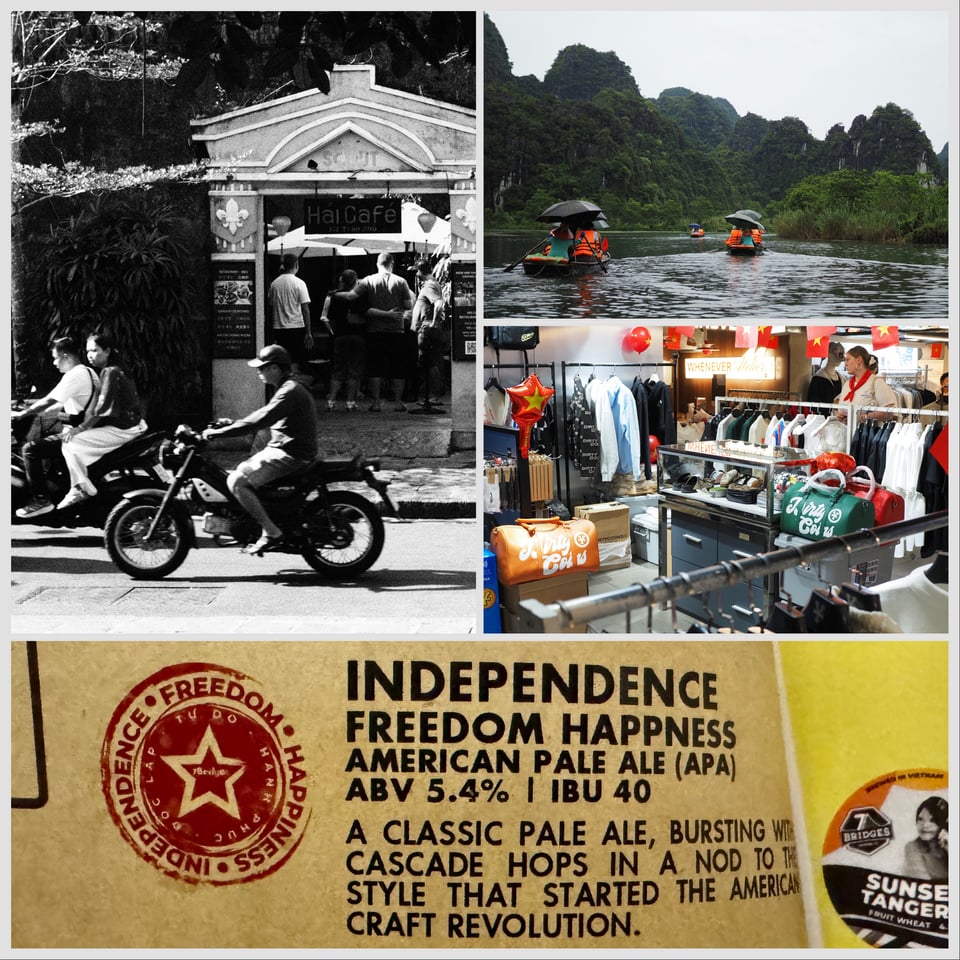
I don’t know what to do with that, mind. Maybe I’ll just host a lunchtime talk and it can be the 21st century equivalent of a holiday slide show.
Tell me if you’re interested, and if enough people respond then I’ll set something up.
We also popped to Singapore on the way back. Thanks to Jess, Honor, Jeanette & Vaughn for food and culture pointers whilst we were there. We didn’t have nearly long enough, and the city remains 98% uneaten by us (something to rectify at some point).

Until next time then
John V Willshire
14.10.25